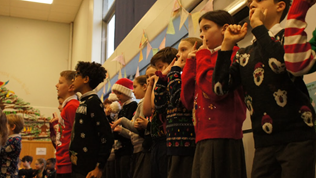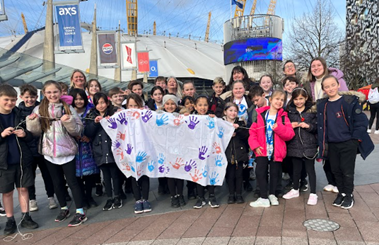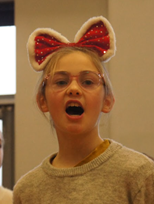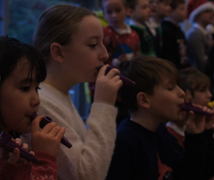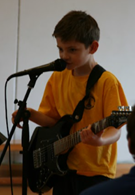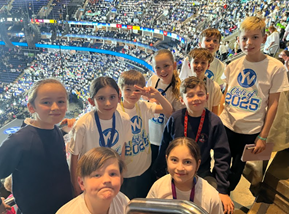At St Mary’s, we believe music is a vital part of a child’s education and personal development. Our vision is to provide every child with the opportunity to explore, enjoy, and make progress in music, regardless of their background or ability.
We aim to:
- Inspire creativity and self-expression through singing, playing instruments, composing, and listening.
- Foster musical skills in line with the National Curriculum, including rhythm, pitch, dynamics, and notation.
- Promote collaboration and confidence through performance opportunities in class, assemblies, and the wider community.
- Celebrate diversity in music by exploring a wide range of genres, cultures, and traditions.
- Encourage lifelong engagement with music, nurturing talents and building a foundation for future learning.
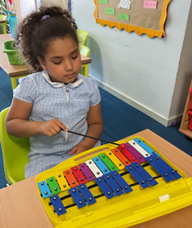
Music at St Mary’s is not just a subject, it is a fun and integrated part of our school life.
At St Mary’s, we follow the curriculum provided by Charanga.
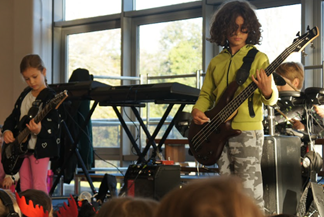
Reception
In the EYFS, music supports development across several Prime and Specific Areas of Learning:
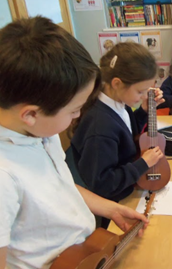
Prime Areas:
Physical Development: Playing instruments, clapping, and moving to music support fine and gross motor skills development.
Personal, Social, and Emotional Development: Children build confidence and self-expression through singing and making music in a group. This fosters a sense of belonging and teamwork.
Communication and Language: Music helps children develop vocabulary (e.g., singing songs, learning words and sounds), listening skills, and the ability to follow instructions.
Specific Areas:
- Expressive Arts and Design: Music directly supports this area by encouraging children to explore sounds, make music, and express emotions. This includes singing, playing instruments, and moving to music.
- Understanding the World: Through music, children explore different cultures, traditions, and sounds from around the world, fostering curiosity and respect for diversity.
Key Stage 1 (Year 1 and 2)
Children are taught to:
- Use their voices expressively and creatively by singing songs and speaking chants and rhymes.
- Play tuned and untuned instruments musically.
- Listen with concentration and understanding to a range of high-quality live and recorded music.
- Experiment with, create, select, and combine sounds using the interrelated dimensions of music (e.g., pitch, duration, dynamics, tempo, timbre, texture, structure).
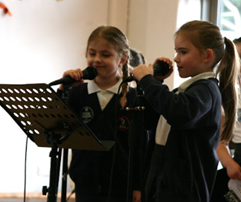
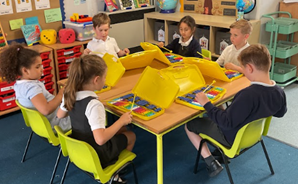
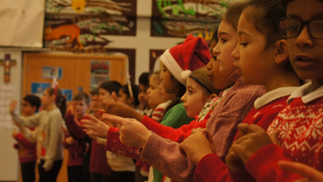
Key Stage 2 (Year 3 – 6)
Children are taught to:
- Play and perform in solo and ensemble contexts using their voices and playing musical instruments with increasing accuracy, fluency, control, and expression.
- Improvise and compose music for a range of purposes using the interrelated dimensions of music.
- Listen with attention to detail and recall sounds with increasing aural memory.
- Use and understand staff and other musical notations.
- Appreciate and understand a wide range of high-quality live and recorded music drawn from different traditions and great composers and musicians.
- Develop an understanding of the history of music.
